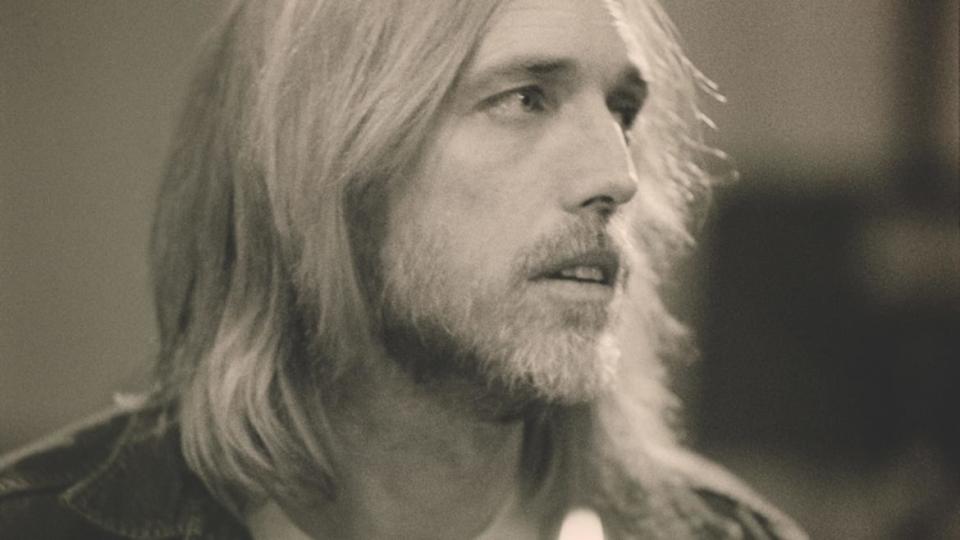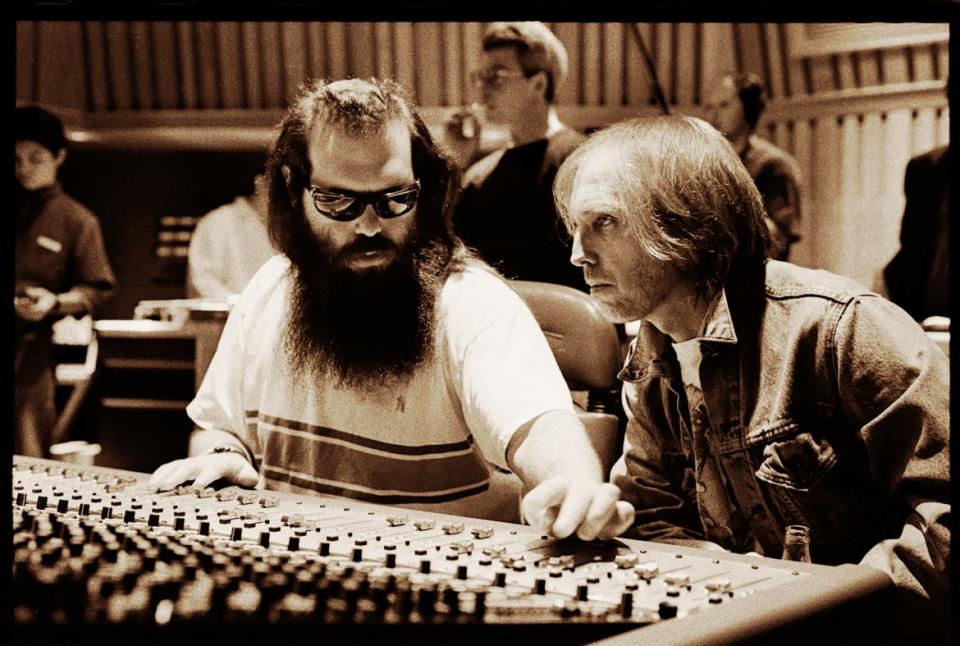When Tom Petty Was at the Height of His Musical Powers

In the waning days of summer 2016, I received a call from Tom Petty’s office. They were in the early stages of planning an expanded edition of Wildflowers, his 1994 multi-platinum album—a career high point, even for an artist of Petty’s pedigree—and wanted to know if I would be willing to fly to Malibu to interview the legend about the period. The album hadn’t come together, but there were lots of amazing archival photos and even unseen footage from the recording sessions. A documentary about the making of the album was definitely in the cards.
Obviously, that interview never happened. Not long after that initial call, I heard that a new plan was in place. Petty would be honored as the MusiCares Person of the Year ahead of the 2017 Grammy Awards, and a 40th anniversary tour, celebrating the Heartbreakers, Petty’s remarkable band throughout his long and illustrious career, would follow. Once that was complete, I was told Petty would be turning his sights to the expanded Wildflowers, and a tour, probably multiple nights at small theaters in major markets, would follow. We could then revisit the interview with Petty, as well as Wildflowers co-producers Rick Rubin and Mike Campbell, so “just be patient.”
On Oct. 2, 2017, with his death in a Santa Monica hospital, the chance to sit down with one of the greatest songwriters of his generation to discuss the greatest artistic achievement of his career evaporated, along with so many other things that meant so much to all of us.
Adele’s New Song ‘Easy on Me’ Is Even More Devastating Than We Thought
Last year, Petty’s family finally released the Wildflowers & All the Rest box set. Chock-full of outtakes, intimate home demos, live recordings and early versions of the songs that Petty cut along the way to releasing Wildflowers in the fertile period of 1993-95, it answered the question of what might have been, and recently achieved gold record status.
But what of that documentary that was so tantalizingly mentioned to me in confidence way back in 2016? Well, it turned out Petty’s family had more Wildflowers-related surprises up their sleeves.
Tom Petty, Somewhere You’ll Feel Free: The Making of Wildflowers, from Mary Wharton, the director of Jimmy Carter: Rock and Roll President, Sam Cooke: Legend and several other first-rate music documentaries, debuts today in theaters globally in honor of what would have been Tom Petty’s 71st birthday, and it’s a treat for any fan of Petty, chronicling perhaps the most remarkable period of his astonishing career with the same love and care Petty’s estate showed in putting together Wildflowers & All the Rest. (The film will debut on Petty’s YouTube channel later this year.)
Wharton says that the task was a daunting one, not just because it was about an artist she’d loved since childhood, and whom she’d met early on in her career, but also because of what had come before her.
“There had been already a documentary made about him, by Peter Bogdanovich—a very famous, established director. You know, just a little epic four-hour documentary about Tom Petty,” Wharton tells me with a laugh of her early days on the project. “So, it was very much, ‘OK, what am I going to bring to this that hasn’t been done before about Tom Petty?’”
Eventually, she understood that the story, and the way forward, was right in front of her.
“First, I realized that the making of Wildflowers, once you set the narrative train in motion, is inciting this incredible narrative arc,” Wharton explains. “Because first Tom decides to make a record, and then decides to do it with Rick Rubin, and then, as you really start the train down the tracks, you realize there’s a much bigger story than that. Plus I noticed, in watching the longer documentary about him, that there’s a lot of detail about what happened in his life, but there’s never a lot of time spent digging in to a particular moment of his life and living in that moment, because there’s so much to cover. We got to live in a period of two or three years for the entire film and explore what it meant to be Tom Petty in that moment.”

Rick Rubin and Tom Petty in the studio
“It became this magical time, creatively, but it was an incredibly hard time for Tom, personally,” Benmont Tench, the Heartbreakers’ keyboardist who’d known Petty since they had been teenagers, recalls of the period when Petty was at a creative peak but his first marriage was starting to fall apart. “I finally get why Tom wanted to call it a solo record, despite the fact that almost everyone else [in the band] eventually came to play on it. I think I get it. He wanted a marked change from the sound of the band. He wanted to make a much more personal-sounding record.”
Debuting earlier this year at SXSW, where it won the festival’s Audience Award, Somewhere You’ll Feel Free went on to win Best Documentary Film at the Boulder Film Festival and received widespread critical acclaim throughout the film festival season. Wharton’s film offers a unique look into the period via never-before-seen 16mm footage shot during the making of Wildflowers, as well as new interviews with album co-producers Rick Rubin and Mike Campbell, along with Tench and others close to Petty at the time.
“We had this beautiful archive of film,” Wharton remembers. “The bulk of the material came from the four hours of footage that was shot during one of the recording studio sessions, and then we supplemented it with other things, like the performance of “Mary Jane’s Last Dance” and the interviews with Tom—but all from the same time period—because we really wanted it to feel like a time capsule.”
“The thing is, I just loved his songwriting, and I was used to him writing in different styles,” Tench adds. “So, to me, it was like, ‘Oh, he’s getting into this kind of thing. That’s cool.’ Because I could hear the Paul Simon in some things he was writing. And I could definitely hear the Beatles. And there was still some rock and roll. But I just thought that they were great songs. And even though I was used to him writing great songs, and I didn’t go, ‘Wow, this is a shift in songwriting,’ I did think a song like ‘Wake Up Time’ was unlike anything we’d recorded before. It felt like the culmination, not lyrically, but musically, of what he’d been writing since I’d joined Mudcrutch. And I thought that Rick brought something different out in them, too. But I know that for Tom—and this is something I learned later, when we were putting the Wildflowers box set together—it was a remarkable experience to write it.”
While the process of putting together Wildflowers & All the Rest began not long after Petty’s untimely death, Somewhere You’ll Feel Free didn’t come together until the box set was nearing completion.
“We edited this film in the middle of the pandemic, in the fall of 2020,” Wharton shares. “It was really a very dark time in America, but having Tom Petty music in my head 24/7, living and breathing and dreaming and eating and sleeping Tom Petty, really felt like I was carrying around a box of sunshine. It was such a relief to be able to be creative during that time and, at a time when I couldn’t see my friends, here were all these friends that I hadn’t been friends with before, because I came to feel really close to Tom and Rick and Mike and Ben.”
“Well, the band was always that way for me,” Tench says when I mention Wharton’s comment. “From the first record till the end, I was always a fan and a participant. And I think, in a way, we must all have been, because we would’ve done anything for that guy.”

Rick Rubin and Tom Petty recording Wildflowers
Ultimately, Somewhere You’ll Feel Free is as much a love letter to Petty’s legions of fans as it is from Wharton and those who worked on the original album to the man himself.
“There are so many great moments,” Wharton says of the emotional process of culling the best moments from the embarrassment of riches she encountered during the making of the film. “But, to me, they’re all like the pieces of the puzzle that fit together to form the picture of who Tom Petty was in this really significant moment in his life.”
For Tench, not surprisingly, it’s all about the songs, and the magic that was present from the earliest days of the recording sessions.
“The song ‘Wildflowers’ just showed up in one pass without him even thinking,” Tench offers of the album’s title track, a song that Petty said had come to him fully formed as he recorded the original demo. “When a song reveals itself like that, you’re taken aback, but in a good way. So, for him to have a whole record of that caliber of song was really cool, and I don’t know if we’d had a batch of songs like that as a band since probably [1979’s] Damn the Torpedoes. We’d made some really good records, and the songs were always fantastic, but they weren’t always as cohesive. All the songs on Wildflowers were knockouts and really did fit together in a very special way.”
And Wharton, who spent more than a year during lockdown, night and day, with Tom Petty at what was no doubt one of the high points of a truly remarkable career, isn’t worried about missing the man who soundtracks so many of our lives.
“It was hard when we finished the film,” she admits as we wrap up our conversation. “But I don’t think he’ll ever not be around in my life. Because I know I’ll be somewhere random, almost daily, and there will be Tom Petty playing in the background. I never really realized how often Tom Petty’s music is played until I was involved so intimately with his music that it’s just like I literally can’t go anywhere without hearing Tom Petty’s music. It’s amazing.”
Get our top stories in your inbox every day. Sign up now!
Daily Beast Membership: Beast Inside goes deeper on the stories that matter to you. Learn more.

 Yahoo Finance
Yahoo Finance 